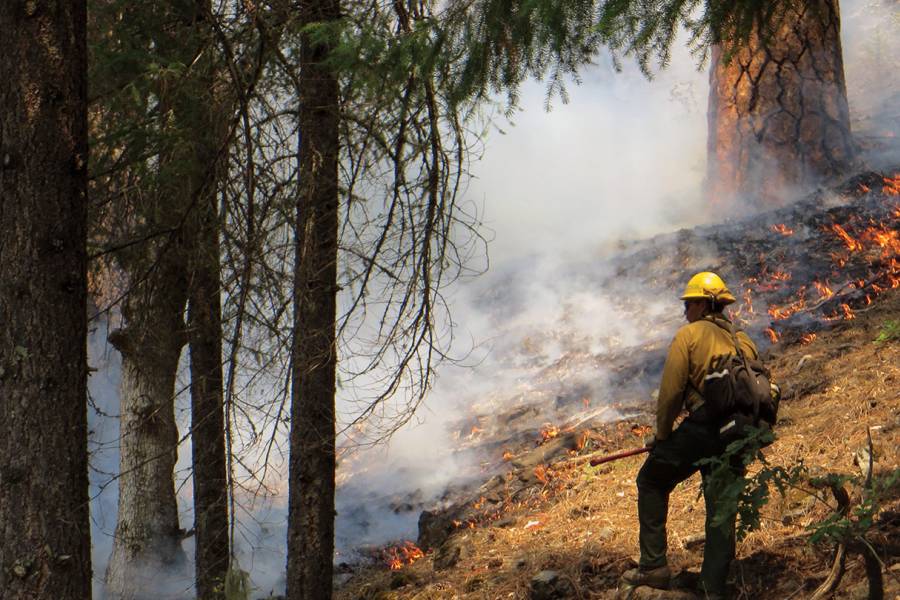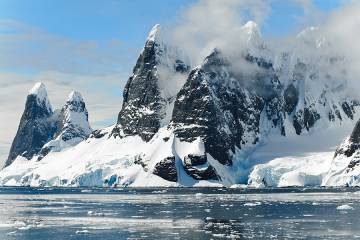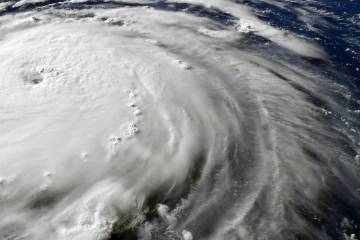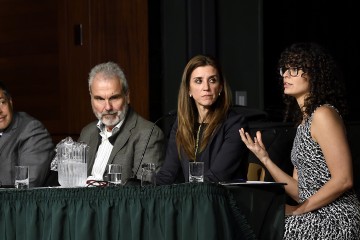On Friday, 13 federal agencies and the U.S. Global Change Research Program issued an exhaustive report that warns of the consequences of climate change in the United States. The culmination of years of research and analysis by the country's top climate scientists, the 1,656-page National Climate Assessment report details the dangers of unchecked global warming on the economy, human health, and the environment.
Some parts of the U.S. economy, the report's authors predict, could suffer hundreds of billions of dollars in annual losses by the end of the century. In just the last four years, damaging weather events have cost an estimated $400 billion.
The report, which is mandated by Congress and released every four years, warns of the continued rise of extreme events like wildfires, floods, droughts, and storm surges. Large wildfires, like the ones that recently affected vast areas of California, will become more frequent and widespread. Crop failures, such as those experienced in the Midwest, will become more commonplace, and yields from major U.S. crops are expected to decline due to rising temperatures and pest outbreaks.
The warming climate and more frequent rain in areas may also expand the range of ticks and mosquitoes, exposing more people to diseases like West Nile, dengue fever, and Lyme. Heat-related deaths will increase.
The Hub caught up with Ben Hobbs, a professor in the Department of Environmental Health and Engineering at Johns Hopkins University's Whiting School of Engineering and founding director of the Johns Hopkins Environment, Energy, Sustainability and Health Institute, to discuss the significance of the National Climate Assessment report and where we go from here. Hobbs has spent the past two decades working on issues related to power generation, climate change, and air and water quality.
When I first reached out, you used the word "exciting" in reference to the report. Can you clarify what you meant?
Of course, I didn't mean exciting in a "gee whiz, this is good news" way. Rather, my enthusiasm was targeted to the fact that this report is a much more effective call to action than its predecessors, in that it is far more detailed and in-depth than previous national assessments. The findings, and the tone of the report, tell us we all need to pay attention to this and start doing something yesterday. The report clearly documents how we here in the United States are being affected right now, and will be affected a lot more in the future, in more bad ways than good. The evidence is undeniable.
Let's talk about the "right now." The report certainly doesn't pull any punches and, as others have described it, is a rather blunt assessment of the dangers we face due to global warming, which are already playing themselves out.
Yes. Just look at the example of what has happened out West in the past five to 10 years. We've witnessed warmer winters, which have led to immense tree mortality in large part through the expanded range of bark beetles, which have proliferated due to drought conditions and warmer temperatures. Huge swaths of mountain ranges through the Pacific Northwest and further inland are now brown with dead trees. This is just one example of the ecological change that scientists have predicted for quite a while. This has not come slowly or stealthily.
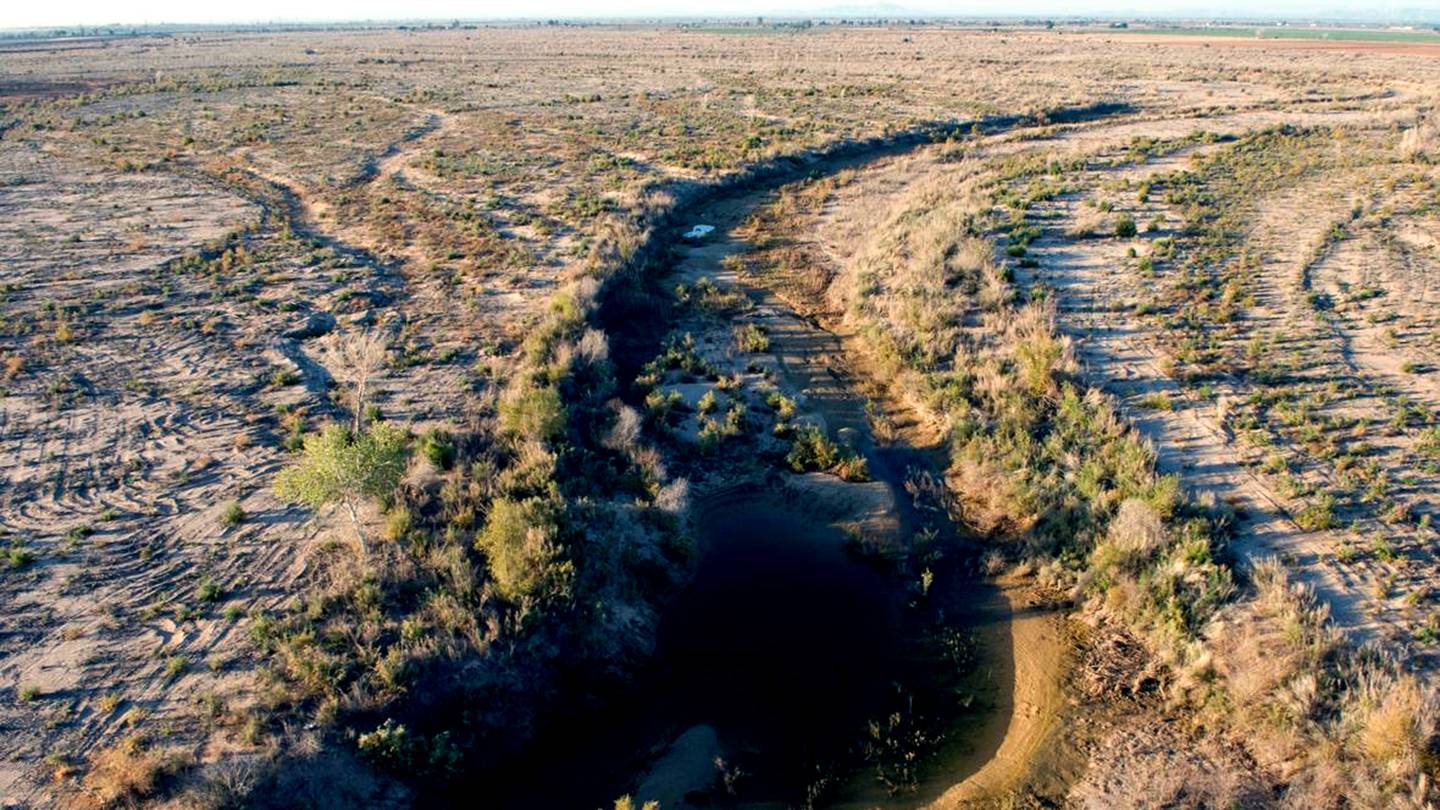
Image caption: The Colorado River runs dry on the U.S. border with Mexico
Image credit: Pete McBride, U.S. Geological Survey
Also, the report details how natural resources that we rely upon, such as fresh water and vegetation, will be stressed and how that will impact society. Agriculture is one of our major exports, and production will certainly be hampered by climate change in the future.
Taking a step back, can you talk about the need for a report like this one and the benefits of its dissemination?
This is an immediate call to action. With this report—to have all this information in one place—the consequences of our actions will be that much harder to ignore. Hopefully more people will be convinced that we can and should do something. Hundreds of the best scientists across the nation have laid bare what is happening and what will happen. Now will this all translate to political action? That is another matter.
One course of action, to try to prevent this version of the future from happening, is to lessen and eliminate greenhouse gas emissions. But there needs to be more immediate measures taken to adapt to the new climate. As we encounter more floods in places like Ellicott City and face further damage to our coastline, we need to start dealing with and mitigating such risks where we live. What types of buildings will we live in? How do we shape our response to increasingly frequent storms, fires, and heat waves? We need to start figuring that out now. We can't have our heads in the sand.
Much of the coverage of the report has focused on how climate change will negatively impact the U.S. economy in the coming decades. Is this a major takeaway for you, too?
I will say that climate change will hurt the economy in two very fundamental ways: what we can produce and how much we benefit from what we consume. Certain segments of the economy will be less productive. With the same amount of tractors, seed, and fertilizer, we will get less out of the agriculture system. The cost of production will go up, and that will trickle down to consumers. As temperatures warm, we will need more fuel to produce the same level of power.
Destruction of infrastructure such as roads and power lines during storms and flooding is one major contributor to these production losses. Will there be $32 billion in infrastructure damage that the report is predicting? That's overly precise, and we could easily see numbers that are half or twice that figure. The damage from fires alone could be in the tens of billions.
Another major economic impact will be directly on what we consume, and on our health and happiness. The effects of climate change are already destroying people's homes.
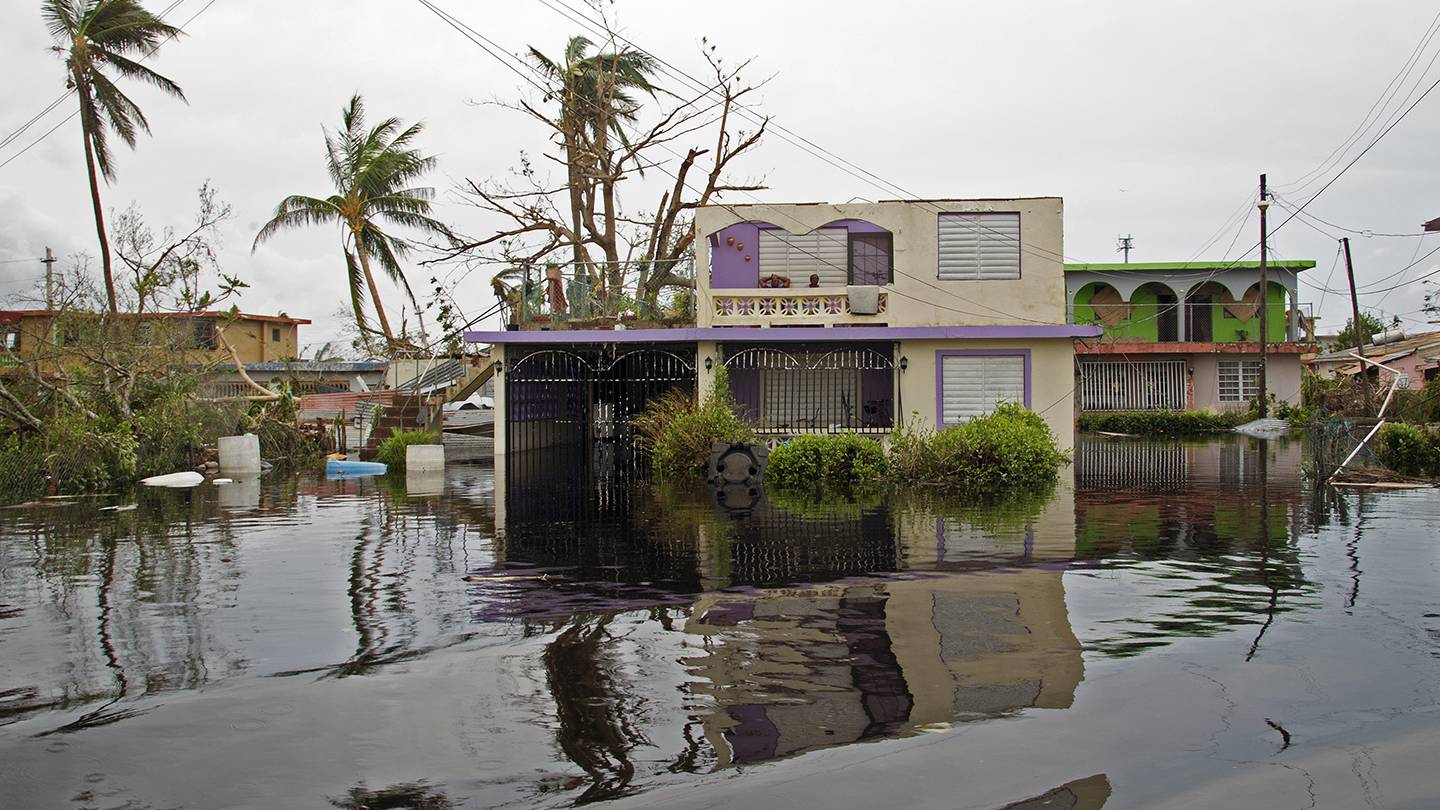
Image caption: Climate change contributes to stronger extreme weather events like Hurricane Maria, which tore through Puerto Rico on September 20, 2017
Image credit: Yuisa Rios/FEMA
But let's put aside the economy for a moment. What about the loss of landscape that we love so much? Like the forests in Colorado and British Columbia? We've already lost an entire national recreational space in Malibu. How can you put a dollar figure on land lost, or species going extinct? Populations of salmon in the Pacific Northwest are under extreme pressure. The killer whale range is shrinking. I don't know how to put a dollar figure on the loss of beauty and the integrity of our natural systems.
What about the direct impact on human health? The report states that effects from climate change, such as poor air quality, extreme weather, and the transmission of disease, will increasingly threaten the heath and well-being of the American people, particularly those already vulnerable.
We will face longer and more severe heat waves, like those that have hit Europe in the past decade. Tropical diseases will spread further. People were simply unprepared for that. Yes, you can adapt. We can relocate, maybe stay put and put an air conditioner in every person's home. But what about places like the South Side of Chicago? People there will be less able to insulate themselves from these types of impacts. Heat waves are already taking lives. It's not the slowly rising average temperature that kills people; it's the extreme events.
What is your response to those who might dismiss or downplay the report's findings?
While it's true that the Earth's climate goes through warm and cold periods, we are well beyond the range of that normal variation. What we're seeing now is consistent with what scientists have been predicting for decades. I can see for myself the water levels that flood the road near my parents' house in Connecticut. What used to be ankle deep is now up to my knees. We see the same thing happening on the Eastern Shore of Maryland. Eventually, the roads will become too expensive to maintain. Some areas where people live, especially along the coast, will be abandoned.
What can we do? What is set in stone, and what can we prevent?
Additional change, I believe, is inevitable. But taking no action will make matters even worse and the consequences more severe. There has been a global effort to keep the warming below 2 degrees Celsius and reduce the growth of emissions to zero. Sadly, I find this hard to imagine happening. We may see a revolution in electric cars, batteries, and other technologies that can lessen our footprint. But in places like Vietnam and India, if they continue to use coal, we're not going to get the large reversals in emissions trends we're striving for.
Still, I see no reason to give up or despair. We're working on technologies that could slow CO2 emissions by absorbing them from the air, and then there's geoengineering, which is the large-scale climate intervention. If we endanger the ecosystems that we treasure, and the economy is in real peril, how might we create, for example, artificial sea spray to create clouds over the Pacific? Such interventions will be costly, but perhaps less costly than the damage they can prevent, and if reversible their risks of unintended effects may be manageable.
I anticipate that this report will cause people to think about these threats beyond the end of this news cycle. It's my hope that this report will galvanize local and state authorities to do more, and ultimately put pressure on the federal government and international bodies to take action.
Posted in Science+Technology, Voices+Opinion
Tagged climate change, global climate change, environmental engineering




